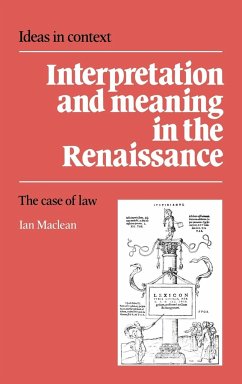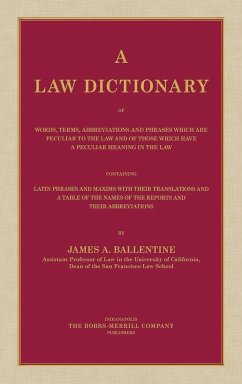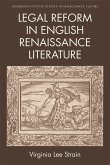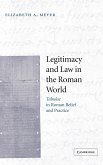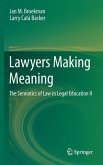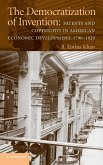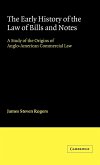It is a commonplace of modern scholarship that there was no general theory of language available to Renaissance thinkers, and that studies of grammar confined themselves for the most part to the investigation of formal features of language. However, no community can operate without some shared assumptions about meaning and its transmission; and it is manifest from the plethora of works of interpretation at this time--commentaries, translations, paraphrases, editions, epitomes--that the practice of conveying significance was thriving, and giving rise to heated debates about correct interpretation in theology, law, medicine, philosophy and humanistic studies. This book investigates theories of interpretation and meaning in Renaissance jurisprudence. How do they relate to the institutions of the law, especially pedagogical institutions? What characterizes the most commonly adopted theories of the legal profession? In what form were they published? How do they relate to the principles of interpretation found in the trivium of grammar, dialectics and rhetoric? In what ways, if any, do they mark a departure from medieval approaches? How do they relate to modern canons of interpretation? And how do they relate to similar issues in modern semantics and the philosophy of language, such as speech act theory or the 'logic of the supplement'? An answer to these questions is sought through an investigation of Renaissance problems concerning the authority of interpreters, the questions of signification, definition, verbal propriety and verbal extension, the problem of cavillation, the alternative interpretative strategies of ratio legis and mens legislatoris, the performative functions of language, and custom and equity as means of interpretation. The theoretical issues raised are examined in the exemplary case of defamation.
Hinweis: Dieser Artikel kann nur an eine deutsche Lieferadresse ausgeliefert werden.
Hinweis: Dieser Artikel kann nur an eine deutsche Lieferadresse ausgeliefert werden.

